286 scholarly books by Haus Publishing and 25
have author last names that start with M
286 scholarly books by Haus Publishing and 25
286 scholarly books by Haus Publishing
25 have author last names that start with M have author last names that start with M
25 have author last names that start with M have author last names that start with M
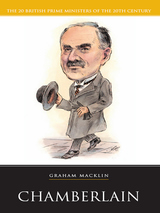
Chamberlain
Graham Macklin
Haus Publishing, 2006
Former British Prime Minister who will always be remembered for his appeasement policy towards Hitler.
[more]
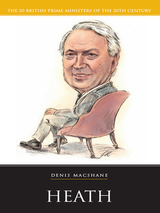
Heath
Denis MacShane
Haus Publishing, 2006
Former British Prime Minister Edward Heath is best known for taking Britain into the European Union.
[more]
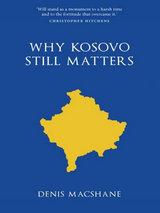
Why Kosovo Matters
Denis MacShane
Haus Publishing, 2011
A short polemical appeal by Dennis MacShane (Minister for Europe 2005-2010) for policy-makers to re-engage with the Western Balkans before it is too late. Drawing on his experience as a Minister for the Balkans between 2001-2010, MacShane has written a vivid and forceful account, showing that the Western Balkans are a symbol of Europe's weakness to transform one of its key regions and the choice is now stark: either the Balkans become Europeanised or Europe becomes Balkanised.
[more]
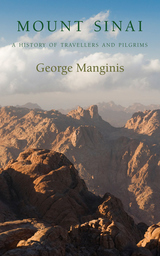
Mount Sinai
A History of Travellers and Pilgrims
George Manginis
Haus Publishing, 2016
A mountain peak above Saint Catherine’s Monastery in Egypt, Mount Sinai is best known as the site where Moses received the Ten Commandments in the biblical Book of Exodus. Mount Sinai brings this rich history to light, exploring the ways in which the landscape of Mount Sinai’s summit has been experienced and transformed over the centuries, from the third century BCE to World War I.
As an important site for multiple religions, Mount Sinai has become a major destination for hundreds of visitors per day. In this multifaceted book, George Manginis delves into the natural environment of Mount Sinai, its importance in the Muslim tradition, the cult of Saint Catherine, the medieval pilgrimage phenomenon, modern-day tourism, and much more. Featuring notes, a bibliography, and illustrations from nineteenth-century travelers’ books, this deft blend of historical analysis, art history, and archaeological interpretation will appeal to tourists and scholars alike.
As an important site for multiple religions, Mount Sinai has become a major destination for hundreds of visitors per day. In this multifaceted book, George Manginis delves into the natural environment of Mount Sinai, its importance in the Muslim tradition, the cult of Saint Catherine, the medieval pilgrimage phenomenon, modern-day tourism, and much more. Featuring notes, a bibliography, and illustrations from nineteenth-century travelers’ books, this deft blend of historical analysis, art history, and archaeological interpretation will appeal to tourists and scholars alike.
[more]
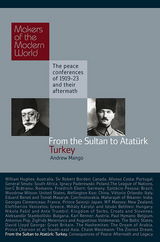
From the Sultan to Atatürk
Turkey
Andrew Mango
Haus Publishing, 2009
World War I sounded the death knell of empires. The forces of disintegration affected several empires simultaneously. To that extent they were impersonal. But prudent statesmen could delay the death of empires, rulers such as Emperor Franz Josef II of Austria-Hungary and the Ottoman Sultan Abdü'lhamid II. Adventurous rulers - Kaiser Wilhelm of Germany and Enver Pasha in the Ottoman Empire - hastened it. Enver's decision to enter the war on the side of Germany destroyed the Ottoman state. It may have been doomed in any case, but he was the agent of its doom. The last Sultan Mehmet VI Vahdettin thought he could salvage the Ottoman state in something like its old form. But Vahdettin and his ministers could not succeed because the victorious Allies had decided on the final partition of the Ottoman state. The chief proponent of partition was Lloyd George, heir to the Turcophobe tradition of British liberals, who fell under the spell of the Greek irredentist politician Venizelos. With these two in the lead, the Allies sought to impose partition on the Sultan's state. When the Sultan sent his emissaries to the Paris peace conference they could not win a reprieve. The Treaty of Sèvres which the Sultan's government signed put an end to Ottoman independence. The Treaty of Sèvres was not ratified. Turkish nationalists, with military officers in the lead, defied the Allies, who promptly broke ranks, each one trying to win concessions for himself at the expense of the others. Mustafa Kemal emerged as the leader of the military resistance. Diplomacy allowed Mustafa Kemal to isolate his people's enemies: Greek and Armenian irredentists. Having done so, he defeated them by force of arms. In effect, the defeat of the Ottoman empire in the First World War was followed by the Turks' victory in two separate wars: a brief military campaign against the Armenians and a long one against the Greeks. Lausanne—where General Ismet succeeded in securing peace on Turkey's terms—was the founding charter of the modern Turkish nation state. But more than that it showed that empires could no longer rule peoples against their wishes. This need not be disastrous: Mustafa Kemal demonstrated that the interests of developed countries were compatible with those of developing ones. He fought the West in order to become like it. Where his domestic critics wanted to go on defying the West, Mustafa Kemal saw that his country could fare best in cooperation with the West.
[more]

Paul Hymans
Belgium
Sally Marks
Haus Publishing, 2010
Paul Hymans was the champion of the small states in the League of Nations Commission at the Paris Peace Conference and was rewarded by becoming the League's first president. He thereby brought about Belgium's transition from the status of sheltered child to full participation in much great-power diplomacy.
[more]

Britten
Centenary Edition
David Matthews
Haus Publishing, 2013
Benjamin Britten was one of the outstanding British composers of the 20th century. He shot to international fame with his operas, performed by his own English Opera Group, and a series of extraordinary instrumental works. His music won a central place in the repertoire and the affection of successive generations of listeners. David Matthews brings to this biography his special insight as a fellow composer, former assistant and life-long friend of Britten to produce a uniquely personal, sensitive and authoritative account.
[more]

Water Resources
Efficient, Sustainable and Equitable Use
Wolfram Mauser
Haus Publishing, 2008
Water is a vital part of every ecosystem on the planet. It is a prerequisite for the basic function and productive efficiency of life on Earth. Today, approximately a third of the earth's population suffers because of water scarcity, and by the year 2025, this percentage is likely rise to two-thirds. Water Resources: Efficient, Sustainable and Equitable Use shows what conflicts this will entail, and provides a basis for possible solutions.
[more]

Beyond Britannia
Reshaping UK Foreign Policy
Simon McDonald
Haus Publishing, 2023
An argument for a new approach to foreign policy in the United Kingdom.
What should the future of British foreign policy look like? For too long, successive governments have shied away from acknowledging uncomfortable truths about the decline of Britain’s military capabilities. As we approach the middle years of the twenty-first century, a new set of urgent and daunting challenges lie ahead, including climate change, technological development, the rise of AI, and a growing threat from China. The need for us to reconcile ourselves with our position in the world has never been more acute. In Beyond Britannia: Reshaping UK Foreign Policy, Simon McDonald persuasively argues that the United Kingdom’s significant soft-power strengths can be harnessed to expand its international influence. Such a shift will only be possible, he says, if we first acknowledge the challenges of Brexit and the need to reduce our unrealistic hard-power ambitions. Excellence in areas that other countries care about will keep the United Kingdom internationally relevant in the second half of the century in a way that nostalgia for a lost pre-eminence will not.
What should the future of British foreign policy look like? For too long, successive governments have shied away from acknowledging uncomfortable truths about the decline of Britain’s military capabilities. As we approach the middle years of the twenty-first century, a new set of urgent and daunting challenges lie ahead, including climate change, technological development, the rise of AI, and a growing threat from China. The need for us to reconcile ourselves with our position in the world has never been more acute. In Beyond Britannia: Reshaping UK Foreign Policy, Simon McDonald persuasively argues that the United Kingdom’s significant soft-power strengths can be harnessed to expand its international influence. Such a shift will only be possible, he says, if we first acknowledge the challenges of Brexit and the need to reduce our unrealistic hard-power ambitions. Excellence in areas that other countries care about will keep the United Kingdom internationally relevant in the second half of the century in a way that nostalgia for a lost pre-eminence will not.
[more]

Leadership
Lessons from a Life in Diplomacy
Simon McDonald
Haus Publishing, 2023
A British diplomat shares lessons on leadership gained over his expansive career.
Simon McDonald argues that we should reflect on the nature and strategies of leadership before entering a leadership role, and we should look to examples of others to help us in shaping our own approaches.
Over nearly four decades in Her Majesty's Diplomatic Service, McDonald worked for four permanent under-secretaries and a dozen senior ambassadors before becoming a permanent under-secretary himself and leading the Service—which has over 14,000 staff members in 270 countries—for five years. He also worked directly for six foreign secretaries and under five prime ministers. Observing these people undertaking such important and difficult work, McDonald saw the behaviors which helped them achieve their objectives, as well as those which hindered them.
In this book, McDonald synthesizes the skills he’s learned through his many years working in diplomacy, offering an insightful contribution amid heightening debates over the leadership of the United Kingdom. Considering the future of British leadership, he makes a case for the reform of the monarchy, the cabinet, civil service, and, in particular, the House of Lords, of which he has been a member since 2021.
Simon McDonald argues that we should reflect on the nature and strategies of leadership before entering a leadership role, and we should look to examples of others to help us in shaping our own approaches.
Over nearly four decades in Her Majesty's Diplomatic Service, McDonald worked for four permanent under-secretaries and a dozen senior ambassadors before becoming a permanent under-secretary himself and leading the Service—which has over 14,000 staff members in 270 countries—for five years. He also worked directly for six foreign secretaries and under five prime ministers. Observing these people undertaking such important and difficult work, McDonald saw the behaviors which helped them achieve their objectives, as well as those which hindered them.
In this book, McDonald synthesizes the skills he’s learned through his many years working in diplomacy, offering an insightful contribution amid heightening debates over the leadership of the United Kingdom. Considering the future of British leadership, he makes a case for the reform of the monarchy, the cabinet, civil service, and, in particular, the House of Lords, of which he has been a member since 2021.
[more]

Beyond Britannia
Reshaping UK Foreign Policy
Simon McDonald
Haus Publishing, 2023
An argument for a new approach to foreign policy in the United Kingdom.
What should the future of British foreign policy look like? For too long, successive governments have shied away from acknowledging uncomfortable truths about the decline of Britain’s military capabilities. As we approach the middle years of the twenty-first century, a new set of urgent and daunting challenges lie ahead, including climate change, technological development, the rise of AI, and a growing threat from China. The need for us to reconcile ourselves with our position in the world has never been more acute. In Beyond Britannia: Reshaping UK Foreign Policy, Simon McDonald persuasively argues that the United Kingdom’s significant soft-power strengths can be harnessed to expand its international influence. Such a shift will only be possible, he says, if we first acknowledge the challenges of Brexit and the need to reduce our unrealistic hard-power ambitions. Excellence in areas that other countries care about will keep the United Kingdom internationally relevant in the second half of the century in a way that nostalgia for a lost pre-eminence will not.
What should the future of British foreign policy look like? For too long, successive governments have shied away from acknowledging uncomfortable truths about the decline of Britain’s military capabilities. As we approach the middle years of the twenty-first century, a new set of urgent and daunting challenges lie ahead, including climate change, technological development, the rise of AI, and a growing threat from China. The need for us to reconcile ourselves with our position in the world has never been more acute. In Beyond Britannia: Reshaping UK Foreign Policy, Simon McDonald persuasively argues that the United Kingdom’s significant soft-power strengths can be harnessed to expand its international influence. Such a shift will only be possible, he says, if we first acknowledge the challenges of Brexit and the need to reduce our unrealistic hard-power ambitions. Excellence in areas that other countries care about will keep the United Kingdom internationally relevant in the second half of the century in a way that nostalgia for a lost pre-eminence will not.
[more]
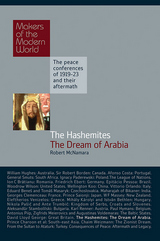
The Hashemites
The Dream of Arabia
Robert McNamara
Haus Publishing, 2010
The story of the Arab Revolt and the Hashemite princes who led it during the First World War is inextricably linked in modern eyes to the legend of Lawrence of Arabia as portrayed in David Lean's 1962 film. But behind this romantic image lies a harsher reality of wartime expediency, double-dealing and dynastic ambition, which shaped the modern Middle East and laid the foundations of many of the conflicts that rack the region to this day. Arab nationalists claim that British instigation for the Arab Revolt against the Ottoman Empire was a commitment to independence for the Arab people, but in this book Robert McNamara shows how the British cultivated the Hashemite Sherifs of Mecca more as an alternative focus during the First World War for Muslim loyalty from the Ottoman Sultan, who as Caliph had declared a jihad against the Allies when the Turks joined the Central Powers, than a leader of an independent and united Arabia. At the same time, the Sykes-Picot Agreement divided up the Middle East between British and French spheres of influence. The sense of betrayal that this caused has coloured Arab nationalists' views of the West ever since. The main countries of the Middle East —Jordan, Syria and Iraq—are all the creations of the post-First World War settlement worked out at the Paris Peace Conference. The story of the Hashemite dynasty at the Paris Peace Conference is the story of the birth of the modern history of a region that is now more than ever at the centre of world affairs.
[more]

Costing the Earth?
Perspectives on Sustainable Development
Bernd Meyer
Haus Publishing, 2009
Our economies must react. "Sustainable behavior must pay off" - this is one of the central tenets of The Sustainability Project. Costing the Earth: Restructuring the Economy for Sustainable Development outlines the economic conditions for achieving the goal of sustainable development, in Europe and around the world. It also explains the incentives for sustainable economic management using economic tools.
[more]
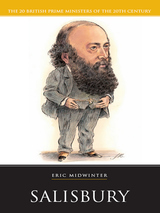
Salisbury
Eric Midwinter
Haus Publishing, 2006
Biography of the first Prime Minister of the 20th Century during the height of the British Empire
[more]

The 13th Tablet
Alex Mitchell
Haus Publishing
Iraq, 2004. Lawlessness is spreading throughout the country and looters have plundered the museums and historical sites. Mina Osman, a young American archaeologist of Iraqi descent, is fighting to preserve the country's antiquities. When she stumbles upon an ancient cuneiform tablet, it proves to be of unimaginable significance: its cryptic language holds a secret that will play a part in a series of earth-shattering events. Aided by ex-US Army Major Jack Hillcliff, Mina travels across the world to unlock the secrets of the 13th Tablet but at each step she is pursued by deadly enemies who will stop at nothing to obtain the tablet and its power for themselves.
[more]
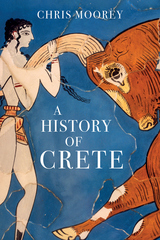
A History of Crete
Chris Moorey
Haus Publishing, 2019
Known by the Greeks as ‘Megalónisos,’ or the ‘Great Island,’ the island of Crete has a long and varied history. Steeped in historical and cultural heritage, Crete is the most visited of the Greek islands. It has also been of paramount strategic importance for thousands of years, thanks to its location close to the junction of three continents and at the heart of the eastern Mediterranean Sea. For much of its long history, the island has been ruled by foreign invaders. Under the rule of the Mycenaeans, Dorians, Romans, Byzantines, Arabs, Venetians, Ottoman Turks and, briefly, the Third Reich, Cretans, who are fierce lovers of freedom, have adapted to living with their conquerors and to the influence of foreign rule on their culture. In a dazzling contrast to these three thousand years of domination, we see two periods of the island’s independence: the vibrant apogee of the Minoan civilization and the brief period of autonomy before union with Greece at the beginning of the twentieth century.
To guide us through this spectacular history, Chris Moorey, who has lived in Crete for over twenty years, provides an engaging and lively account of the island spanning from the Stone Age to the present day. A History of Crete steps in to fill a gap in scholarship on this fascinating island, providing the first complete history of Crete to be published for over twenty years, and the first ever that is written with a wide readership in mind.
To guide us through this spectacular history, Chris Moorey, who has lived in Crete for over twenty years, provides an engaging and lively account of the island spanning from the Stone Age to the present day. A History of Crete steps in to fill a gap in scholarship on this fascinating island, providing the first complete history of Crete to be published for over twenty years, and the first ever that is written with a wide readership in mind.
[more]
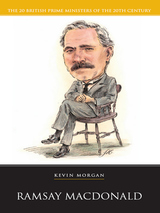
Ramsay Macdonald
Kevin Morgan
Haus Publishing, 2006
The Labour party's first Prime Minister
[more]

Shostakovich
Brian Morton
Haus Publishing, 2021
A biography of popular twentieth-century Soviet composer Dmitri Shostakovich.
Internationally esteemed, Soviet composer Dmitri Shostakovich is widely considered to have been the last great classical symphonist, and his reputation has continued to increase since his death in 1975.
Shostakovich wrote his First Symphony at the age of nineteen, then he soon embarked on a dual career as a concert pianist and composer. His early avant-gardism resulted in the triumph of his 1934 opera Lady Macbeth of Mtsensk. Though at first highly praised by Stalin, Shostakovich would later suffer from a complex and brutalizing relationship with the Soviet dictator and the governments that followed him. Despite this persecution, his Seventh Symphony was embraced as a potent symbol of Russian resistance to the invading Nazi army in both the USSR and the West. Though his later years were marked by ill health, his rate of composition remained prolific. His music became increasingly beloved as he established himself as the most popular composer of serious music in the middle of the twentieth century.
Internationally esteemed, Soviet composer Dmitri Shostakovich is widely considered to have been the last great classical symphonist, and his reputation has continued to increase since his death in 1975.
Shostakovich wrote his First Symphony at the age of nineteen, then he soon embarked on a dual career as a concert pianist and composer. His early avant-gardism resulted in the triumph of his 1934 opera Lady Macbeth of Mtsensk. Though at first highly praised by Stalin, Shostakovich would later suffer from a complex and brutalizing relationship with the Soviet dictator and the governments that followed him. Despite this persecution, his Seventh Symphony was embraced as a potent symbol of Russian resistance to the invading Nazi army in both the USSR and the West. Though his later years were marked by ill health, his rate of composition remained prolific. His music became increasingly beloved as he established himself as the most popular composer of serious music in the middle of the twentieth century.
[more]
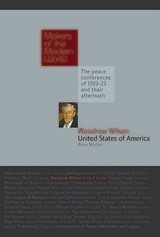
Woodrow Wilson
USA
Brian Morton
Haus Publishing, 2008
Woodrow Wilson (1856-1924). It is September 1919 - a meeting hall in a small mid-Western city. A thin man is speaking to a sceptical audience about peace. He has already met the city fathers and has been warned that 'out here' what happens in Europe means very little. Even the late war scarcely impinged on the place, though it had been recognised that it hadn't been altogether good for trade and one or two local boys had died on the fields of France in the very last days of the conflict. The speaker was obviously impassioned, with a preacher's cadence to his voice, and particularly so when he promoted the idea of an international League of Nations to guarantee future peace and ensure that the war into which America had been lured in 1917 really was 'a war to end all wars'. It is noticed that the man is sweating and pale and that he pauses frequently to dab his lips. The price of his campaign for peace - and peace conducted with principle - seems to be a terrible struggle between strong belief on the one hand and failing reserves on the other. Woodrow Wilson will live for another five years, but his battle to convince America to join the League is lost and much of the vigour that marked his time as President of his country, as president of Princeton University, even as an enthusiastic college football coach, was left behind in the Hall of Mirrors at Versailles. This book will look at the life of Wilson, from his early years during the American Civil War, through his academic and political career and America's involvement in the First World War, to Wilson's role at Versailles, including the construction of his Fourteen Points, his principles for the reformation of Europe, and the consequences of Versailles for America and on later conflicts.
[more]
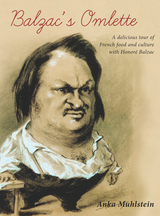
Balzac's Omelette
A Delicious Tour of French Food and Culture with Honore de Balzac
Anka Muhlstein
Haus Publishing, 2012
‘Tell me where you eat. what you eat, and at what time you eat, and I will tell you who you are.’ This is the motto of Anka Muhlstein’s erudite and witty book about the ways food and the art of the table feature in Honoré de Balzac’s writing.
It is not a coincidence that Balzac was the first in French literature to tackle this appetizing topic. Before the French Revolution, a traveller in France was apt to find local food scarce, tasteless and of dubious appearance. Restaurants did not even exist! Just as the art of the table became a centrepiece of French mores, Balzac used it as a connecting thread in his novels, showing how food can evoke character, atmosphere, class and social pretensions. Full of insights, Balzac’s Omelette invites you to taste anew French literature and cuisine.
It is not a coincidence that Balzac was the first in French literature to tackle this appetizing topic. Before the French Revolution, a traveller in France was apt to find local food scarce, tasteless and of dubious appearance. Restaurants did not even exist! Just as the art of the table became a centrepiece of French mores, Balzac used it as a connecting thread in his novels, showing how food can evoke character, atmosphere, class and social pretensions. Full of insights, Balzac’s Omelette invites you to taste anew French literature and cuisine.
[more]
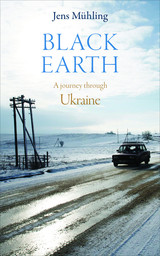
Black Earth
A Journey through Ukraine
Jens Mühling
Haus Publishing, 2018
An in-depth exploration of Ukraine through encounters with the many different people who live there.
“Will someone pay for the spilled blood? No. Nobody.” Mikhail Bulgakov composed this ominous and prophetic phrase in Kiev amid the turmoil of the Russian civil war. Since then, Ukrainian borders have shifted constantly, and its people have suffered numerous military foreign interventions. Ukraine has only existed as an independent state since 1991, and what exactly it was before then is controversial among its people as well as its European neighbors.
In Black Earth: A Journey through the Ukraine, journalist and celebrated travel writer Jens Mühling takes readers across the country amid the ousting of former president Viktor Yanukovych and the Russian annexation of Crimea. Mühling delves deep into daily life in Ukraine, narrating his encounters with Ukrainian nationalists and old communists, Crimean Tatars and Cossacks, smugglers, and soldiers. Black Earth connects all these stories to convey an unconventional and unfiltered view of Ukraine, a country at the crossroads of Europe and Asia and the center of countless conflicts.
In this paperback edition, a new preface is included that takes into account recent developments up to the 2022 war between Russia and Ukraine.
“Will someone pay for the spilled blood? No. Nobody.” Mikhail Bulgakov composed this ominous and prophetic phrase in Kiev amid the turmoil of the Russian civil war. Since then, Ukrainian borders have shifted constantly, and its people have suffered numerous military foreign interventions. Ukraine has only existed as an independent state since 1991, and what exactly it was before then is controversial among its people as well as its European neighbors.
In Black Earth: A Journey through the Ukraine, journalist and celebrated travel writer Jens Mühling takes readers across the country amid the ousting of former president Viktor Yanukovych and the Russian annexation of Crimea. Mühling delves deep into daily life in Ukraine, narrating his encounters with Ukrainian nationalists and old communists, Crimean Tatars and Cossacks, smugglers, and soldiers. Black Earth connects all these stories to convey an unconventional and unfiltered view of Ukraine, a country at the crossroads of Europe and Asia and the center of countless conflicts.
In this paperback edition, a new preface is included that takes into account recent developments up to the 2022 war between Russia and Ukraine.
[more]
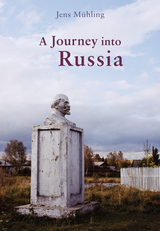
A Journey into Russia
Jens Mühling
Haus Publishing, 2014
When German journalist Jens Mühling met Juri, a Russian television producer selling stories about his homeland, he was mesmerized by what he heard: the real Russia and Ukraine were more unbelievable than anything he could have invented. The encounter changed Mühling’s life, triggering a number of journeys to Ukraine and deep into the Russian heartland on a quest for stories of ordinary and extraordinary people. Away from the bright lights of Moscow, Mühling met and befriended a Dostoevskian cast of characters, including a hermit from Tayga who had only recently discovered the existence of a world beyond the woods, a Ukrainian Cossack who defaced the statue of Lenin in central Kiev, and a priest who insisted on returning to Chernobyl to preach to the stubborn few determined to remain in the exclusion zone.
Unveiling a portion of the world whose contradictions, attractions, and absurdities are still largely unknown to people outside its borders, A Journey into Russia is a much-needed glimpse into one of today’s most significant regions.
Unveiling a portion of the world whose contradictions, attractions, and absurdities are still largely unknown to people outside its borders, A Journey into Russia is a much-needed glimpse into one of today’s most significant regions.
[more]
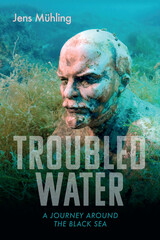
Troubled Water
A Journey Around the Black Sea
Jens Mühling
Haus Publishing, 2021
A history of the countries bordering the Black Sea told through the stories of the people who live there.
Fringing the Black Sea is a diverse array of countries, some centuries old and others emerging only after the collapse of the Soviet Union. Jens Mühling travels through this region, telling the stories of the people he meets along the way in order to paint a picture of the mix of cultures found here and to understand the present against a history stretching back to the arrival of Ancient Greek settlers and beyond.
A fluent Russian speaker with a knack for gaining the trust of those he meets, Mühling brings together a cast of characters as diverse as the stories he hears, all of whom are willing to tell him their complex, contradictory, and often fantastical tales full of grief and legend. He meets descendants of the so-called Pontic Greeks, whom Stalin deported to Central Asia and who have now returned; Circassians who fled to Syria a century ago and whose great-great-grandchildren have returned to Abkhazia; and members of ethnic minorities like the Georgian Mingrelians or Bulgarian Muslims, expelled to Turkey in the summer of 1989. Mühling captures the region’s uneasy alliance of tradition and modernity and the diverse humanity of those who live there.
Fringing the Black Sea is a diverse array of countries, some centuries old and others emerging only after the collapse of the Soviet Union. Jens Mühling travels through this region, telling the stories of the people he meets along the way in order to paint a picture of the mix of cultures found here and to understand the present against a history stretching back to the arrival of Ancient Greek settlers and beyond.
A fluent Russian speaker with a knack for gaining the trust of those he meets, Mühling brings together a cast of characters as diverse as the stories he hears, all of whom are willing to tell him their complex, contradictory, and often fantastical tales full of grief and legend. He meets descendants of the so-called Pontic Greeks, whom Stalin deported to Central Asia and who have now returned; Circassians who fled to Syria a century ago and whose great-great-grandchildren have returned to Abkhazia; and members of ethnic minorities like the Georgian Mingrelians or Bulgarian Muslims, expelled to Turkey in the summer of 1989. Mühling captures the region’s uneasy alliance of tradition and modernity and the diverse humanity of those who live there.
[more]

Building a New World Order
Sustainable Policies for the Future
Harald Müller
Haus Publishing, 2009
Building a New World Order: Sustainable Policies for the Future demonstrates how the conditions for sustainable development might be created, and why all our futures are dependent on a global engagement and involvement, not just that of a few selected statesmen.
[more]
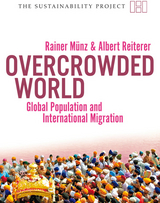
Overcrowded World?
Global Population and International Migration
Rainer Münz
Haus Publishing, 2009
Today our planet is home to 6.8 billion people. By the year 2050, the global population will have grown to 9 billion. Yet the problems that will come with this massive expansion are not universal. Many developing nations will experience high demographic growth, while industrialized countries will have to deal with aging and eventually shrinking populations, as well as with more immigration. Overcrowded World? Global Population and International Migration offers a perspective on the causes and effects of rapid population change, and asks two vital questions: how can Earth sustain this growth? And what can we do to improve the living conditions of present and future generations?
[more]
READERS
Browse our collection.
PUBLISHERS
See BiblioVault's publisher services.
STUDENT SERVICES
Files for college accessibility offices.
UChicago Accessibility Resources
home | accessibility | search | about | contact us
BiblioVault ® 2001 - 2024
The University of Chicago Press









